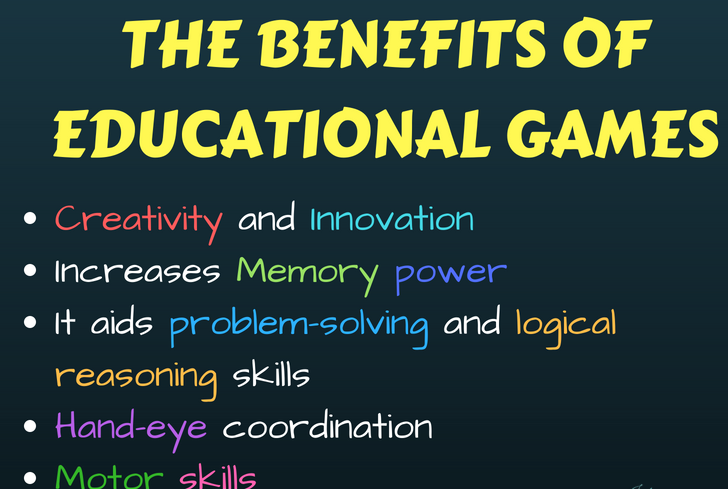The benefits of educational games for children’s learning
Educational games are games designed to promote learning and skill development among children. These games are an effective tool for children’s learning as they provide an interactive and engaging experience that motivates children to learn.
In this article, we will discuss the benefits of educational games for children’s learning, the types of educational games, how to choose the right game for children, and the challenges of using educational games.
Benefits of educational games for children’s learning
Educational games offer numerous benefits for children’s learning. Here are some of the benefits of educational games:
A. Promotes active learning
Educational games promote active learning as children are required to participate in the game actively. Children are required to make decisions, solve problems, and complete tasks that relate to the learning objectives. This active participation helps children to retain information better.
B. Enhances problem-solving skills
Educational games require children to solve problems and make decisions. This process helps children to develop problem-solving skills that are essential for success in life. Children learn to think critically and creatively when playing educational games.
C. Improves cognitive skills
Educational games can improve cognitive skills such as problem-solving, critical thinking, and decision-making. These games often require children to think creatively and logically to solve problems and complete tasks. By playing educational games, children can develop important cognitive skills that will benefit them in school and in life.
D. Increases motivation and engagement
Educational games are designed to be fun and engaging. Children are more likely to be motivated to learn when they are having fun. Educational games provide an opportunity for children to learn in a stress-free environment, which can increase their motivation to learn.
E. Develops social skills
Some educational games require children to work in teams or interact with other players. This interaction helps children to develop social skills such as communication, collaboration, and teamwork.
F. Provides immediate feedback
Educational games provide immediate feedback to children, which helps them to learn from their mistakes. Children can see the consequences of their actions in real-time, which can help them to make better decisions in the future.
Types of educational games
There are various types of educational games that children can play. Here are some of the types of educational games:
A. Puzzle games
Puzzle games require children to solve puzzles or complete challenges. These games help children to develop problem-solving skills and critical thinking.
B. Simulation games
Simulation games allow children to simulate real-life scenarios. These games help children to develop decision-making skills and learn about cause and effect.
C. Adventure games
Adventure games require children to complete tasks and solve puzzles to progress through the game. These games help children to develop problem-solving skills and critical thinking.
D. Role-playing games
Role-playing games allow children to take on different roles and act out scenarios. These games help children to develop social skills such as communication, collaboration, and teamwork.
E. Quiz games
Quiz games test children’s knowledge on various topics. These games help children to learn new information and retain knowledge.
How to choose the right educational game for children
Choosing the right educational game for children is important to ensure that they are learning effectively. Here are some tips for choosing the right educational game for children:
A. Age-appropriate games
Choose games that are appropriate for the child’s age and developmental level.
B. Games that align with learning objectives
Choose games that align with the learning objectives that you want the child to achieve.
C. Games with positive themes and messages
Choose games that have positive themes and messages that promote good values and behaviors.
D. Games with clear instructions
Choose games that have clear instructions that are easy to follow.
Challenges of using educational games
While educational games offer numerous benefits, there are also challenges to using them. Here are some of the challenges of using educational games:
A. Limited access to technology
Not all children have access to technology such as computers or tablets that are required to play educational games.
B. Cost
Some educational games can be expensive, which may make it difficult for some families to afford.
C. Limited educational value
Not all educational games are created equal. Some games may not provide much educational value or may not align with the child’s learning objectives.
D. Screen time
Excessive screen time can have negative effects on children’s health and development. Parents should monitor the amount of time that children spend playing educational games.
E. Lack of teacher involvement
Educational games should not replace the role of teachers in children’s learning. Teachers should be involved in selecting and implementing educational games in the classroom.
